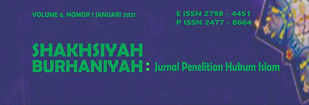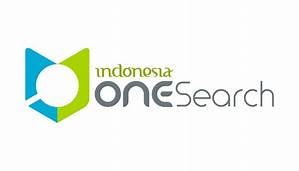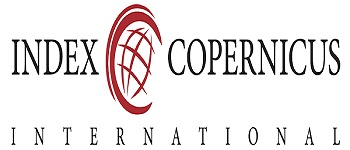Publication Etics
The article that can be reviewed by editor board after completing the attachment of plagiarism checker and stated that article at least 75% is origin. The following are the tools of checker:
- Plagiarisma
- Plagiarism Checker
- Other tools of plagiarism
Ethical Guideline for Journal Publication
The publication of an article in a peer-reviewed Shakhsiyah Burhaniyah is an essential building block in the development of a coherent and respected network of knowledge. It is a direct reflection of the quality of the work of the authors and the institutions that support them. Peer-reviewed articles support and embody the scientific method. It is therefore important to agree upon standards of expected ethical behavior for all parties involved in the act of publishing: the author, the journal editor, the peer reviewer, the publisher and the society.
Publication decisions
The editor of the Shakhsiyah Burhaniyah is responsible for deciding which of the articles submitted to the journal should be published. The validation of the work in question and its importance to researchers and readers must always drive such decisions. The editors may be guided by the policies of the journal's editorial board and constrained by such legal requirements as shall then be in force regarding libel, copyright infringement and plagiarism. The editors may confer with other editors or reviewers in making this decision.
Fair play
An editor at any time evaluate manuscripts for their intellectual content without regard to race, gender, sexual orientation, religious belief, ethnic origin, citizenship, or political philosophy of the authors.
Confidentiality
The editor and any editorial staff must not disclose any information about a submitted manuscript to anyone other than the corresponding author, reviewers, potential reviewers, other editorial advisers, and the publisher, as appropriate.
Disclosure and conflicts of interest
Unpublished materials disclosed in a submitted manuscript must not be used in an editor's own research without the express written consent of the author.
Duties of Reviewers
Contribution to Editorial Decisions
Peer review assists the editor in making editorial decisions and through the editorial communications with the author may also assist the author in improving the paper.
Promptness
Any selected referee who feels unqualified to review the research reported in a manuscript or knows that its prompt review will be impossible should notify the editor and excuse himself from the review process.
Confidentiality
Any manuscripts received for review must be treated as confidential documents. They must not be shown to or discussed with others except as authorized by the editor.
Standards of Objectivity
Reviews should be conducted objectively. Personal criticism of the author is inappropriate. Referees should express their views clearly with supporting arguments.
Acknowledgement of Sources
Reviewers should identify relevant published work that has not been cited by the authors. Any statement that an observation, derivation, or argument had been previously reported should be accompanied by the relevant citation. A reviewer should also call to the editor's attention any substantial similarity or overlap between the manuscript under consideration and any other published paper of which they have personal knowledge.
Disclosure and Conflict of Interest
Privileged information or ideas obtained through peer review must be kept confidential and not used for personal advantage. Reviewers should not consider manuscripts in which they have conflicts of interest resulting from competitive, collaborative, or other relationships or connections with any of the authors, companies, or institutions connected to the papers.
Duties of Authors
Reporting standards
Authors of reports of original research should present an accurate account of the work performed as well as an objective discussion of its significance. Underlying data should be represented accurately in the paper. A paper should contain sufficient detail and references to permit others to replicate the work. Fraudulent or knowingly inaccurate statements constitute unethical behaviour and are unacceptable.
Originality and Plagiarism
The authors should ensure that they have written entirely original works, and if the authors have used the work and/or words of others that this has been appropriately cited or quoted.
Multiple, Redundant or Concurrent Publication
An author should not in general publish manuscripts describing essentially the same research in more than one journal or primary publication. Submitting the same manuscript to more than one journal concurrently constitutes unethical publishing behaviour and is unacceptable.
Acknowledgment of Sources
Proper acknowledgment of the work of others must always be given. Authors should cite publications that have been influential in determining the nature of the reported work.
Authorship of the Paper
Authorship should be limited to those who have made a significant contribution to the conception, design, execution, or interpretation of the reported study. All those who have made significant contributions should be listed as co-authors. Where there are others who have participated in certain substantive aspects of the research project, they should be acknowledged or listed as contributors. The corresponding author should ensure that all appropriate co-authors and no inappropriate co-authors are included on the paper, and that all co-authors have seen and approved the final version of the paper and have agreed to its submission for publication.
Disclosure and Conflicts of Interest
All authors should disclose in their manuscript any financial or other substantive conflict of interest that might be construed to influence the results or interpretation of their manuscript. All sources of financial support for the project should be disclosed.
Fundamental errors in published works
When an author discovers a significant error or inaccuracy in his/her own published work, it is the author’s obligation to promptly notify the journal editor or publisher and cooperate with the editor to retract or correct the paper.
Shakhsiyah Burhaniyah: Jurnal Penelitian Hukum Islam adalah jurnal yang diterbitkan oleh LPPM Universitas Hasyim Asy’ari tebuireng Jombang. Pernyataan ini menjelaskan perilaku etika dari semua pihak yang terlibat dalam proses penerbitan sebuah artikel di jurnal ini, termasuk penulis, ketua editor, Dewan Editorial, reviewer dan penerbit. Pernyataan ini didasarkan pada Pedoman Praktik Terbaik untuk Editor Journal Shakhsiyah Burhaniyah.
Pedoman Etika untuk Publikasi Jurnal
Publikasi sebuah artikel di Shakhsiyah Burhaniyah, Jurnal Penelitian Hukum Islam merupakan bangunan penting dalam pengembangan jaringan pengetahuan yang koheren dan diakui. Ini adalah refleksi langsung dari kualitas karya penulis dan lembaga yang mendukung mereka. Artikel-artikel yang ter-review mendukung dan mewujudkan metode ilmiah. Oleh karena itu, penting untuk menyepakati standar perilaku etika yang diharapkan untuk semua pihak yang terlibat dalam tindakan penerbitan: penulis, editor jurnal, mitra bestari, penerbit dan masyarakat.
Keputusan Publikasi
Editor Shakhsiyah Burhaniyah, Jurnal Penelitian Hukum Islam bertanggung jawab untuk memutuskan artikel terkirim mana yang harus diterbitkan. Validasi pekerjaan tersebut dan pentingnya bagi peneliti dan pembaca harus selalu mendorong keputusan tersebut. Para editor dapat dipandu oleh kebijakan dari dewan editor jurnal dan dibatasi oleh ketentuan hukum yang berlaku, seperti pencemaran nama baik, pelanggaran hak cipta dan plagiarisme. Para editor dapat berunding dengan editor lain atau mitra bestari dalam membuat keputusan ini.
Aspek Keadilan
Editor setiap saat mengevaluasi naskah untuk konten intelektual penulis tanpa memandang ras, jenis kelamin, orientasi seksual, keyakinan agama, etnis, kewarganegaraan, atau pandangan politik dari para penulis.
Kerahasiaan
Editor dan setiap staf editorial harus tidak mengungkapkan informasi apapun tentang naskah terkirim kepada orang lain selain penulis, reviewer, calon reviewer, dewan editor lainnya yang sesuai, dan penerbit, yang sesuai.
Pengungkapan dan Konflik Kepentingan
Bahan yang tidak dipublikasikan dalam sebuah naskah yang diajukan tidak boleh digunakan dalam penelitian editor sendiri tanpa persetujuan tertulis dari penulis.
Tugas Reviewer
Kontribusi untuk Keputusan Editorial
Mitra bestari membantu editor dalam membuat keputusan editorial dan dapat membantu penulis dalam meningkatkan kualitas manuskrip melalui editor.
Kecepatan
Setiap reviewer yang dipilih yang merasa tidak memenuhi syarat / minat untuk menelaah manuskrip atau tidak mempunyai cukup waktu untuk menelaah harus segera memberitahu editor dan undur diri dari proses peninjauan.
Kerahasiaan
Setiap manuskrip diterima untuk di-review harus diperlakukan sebagai dokumen rahasia. Manuskrip harus tidak disebarkan atau didiskusikan dengan orang lain kecuali diizinkan oleh editor.
Standar Objektivitas
Review harus dilakukan secara objektif. Kritik pribadi dari penulis adalah tidak pantas untuk disampaikan. Reviewer harus menyatakan pandangan mereka secara jelas dengan argumen yang mendukung.
Pengakuan Sumber
Reviewer harus mengidentifikasi karya telah terbit yang relevan yang belum dikutip oleh penulis. Pernyataan bahwa observasi, derivasi, atau argumen telah dilaporkan sebelumnya harus disertai dengan kutipan yang relevan. Reviewer juga harus menyatakan ke editor jika ada kesamaan substansial atau tumpang tindih antara naskah yang dipertimbangkan dan setiap artikel lain yang diterbitkan.
Pengungkapan dan Benturan Kepentingan
Informasi atau ide yang diperoleh dalam proses review harus dijaga kerahasiaannya dan tidak digunakan untuk keuntungan pribadi. Reviewer harus menolak naskah di mana mereka memiliki konflik kepentingan akibat kompetisi, kolaborasi, atau hubungan dan koneksi lainnya dengan salah satu penulis, perusahaan, atau lembaga yang berkaitan dengan manuskrip.
Tugas Penulis
Standar Pelaporan
Penulis laporan penelitian asli harus menyajikan laporan yang akurat dari pekerjaan yang dilakukan serta diskusi objektif dari signifikansi risetnya. Data yang mendasari harus disertakan secara akurat di manuskrip. Sebuah manuskrip harus mengandung detail dan referensi yang cukup untuk mengizinkan orang lain untuk meniru pekerjaan. Laporan penipuan atau pemberian informasi tidak akurat secara sengaja merupakan perilaku yang tidak etis dan tidak dapat diterima.
Akses Data dan Retensi
Penulis diminta untuk memberikan data mentah yang terkait dengan manuskrip untuk editorial, dan harus siap untuk menyediakan akses publik terhadap data tersebut (konsisten dengan ALPSP-STM Pernyataan Data dan Database), jika memungkinkan, dan harus dalam hal apapun untuk menyimpan data tersebut setelah publikasi.
Orisinalitas dan Plagiarisme
Para penulis harus memastikan bahwa mereka telah menulis karya sepenuhnya asli, dan jika penulis telah menggunakan pekerjaan dan / atau kata-kata dari orang lain, maka ini telah dikutip dengan tepat.
Publikasi Ganda, Redundan dan Serentak
Seorang penulis tidak boleh mempublikasikan manuskrip yang menjabarkan esensi penelitian yang sama di lebih dari satu jurnal atau publikasi utama. Pengiriman manuskrip yang sama untuk lebih dari satu jurnal bersamaan merupakan perilaku penerbitan tidak etis dan tidak dapat diterima.
Pengakuan Sumber
Pengakuan yang tepat dari karya orang lain harus selalu diberikan. Penulis harus mengutip publikasi yang telah berpengaruh dalam menentukan dari pekerjaan yang dilaporkannya.

















